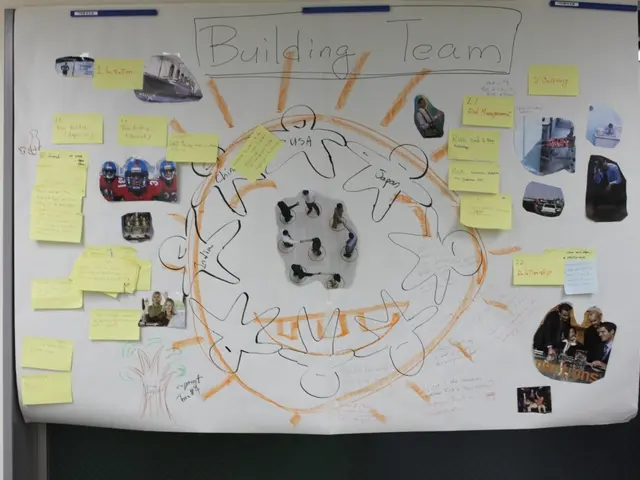Predicting Lifespan: Might a Basic Blood Examination Reveal Insights into Your Aging Process?
🧓♂️ Intrinsic Capacity: A New Approach to Aging
💧 Intrinsic capacity (IC), a term coined by the World Health Organization, represents a person's sum of physical and mental capacities. Think of it as a measure of your ability to walk, think, see, hear, and remember[2][3].
eben healingNewfound hope comes with the creation of a test known as DNAm IC (DNA methylation-based intrinsic capacity), which leverages DNA methylation patterns— chemical tags that regulate gene activity—to go beyond your chronological age and offer a glimpse of biological intrinsic capacity. This forward-thinking technique offers insights into how effectively your body is functioning[2].
🔒 The Game ChangerResearch suggests that the DNAm IC test holds promise in predicting all-cause mortality by examining DNA methylation patterns in blood samples[2][3]. Experts view DNAm IC as a breakthrough in aging science, forging connections between molecular biology and tangible outcomes like mobility, cognition, and lifespan[2].
🌞 Aging TrackerWith DNAm IC, your future health isn't just a guessing game. Tracking your aging becomes an actionable endeavor, thanks to this innovative technique. As we continue to validate its usability for older adults with low IC, DNAm IC paves the way for using personalized epigenetic markers to guide interventions in preventive geriatrics, longevity medicine, and precision public health[2].
🤔 Improving ICWhile IC naturally decreases with age, modifiable factors can contribute to slowing this decline. For instance, a high dietary intake of oily fish and keeping your sugar consumption within recommended guidelines (no more than 5% of total energy intake) are linked to increased DNAm IC[2][3].
💊 Expert TipsReady to extend your healthy years? Here's some advice:
1️⃣ Adopt a platter-rich diet, utilizing fresh produce, whole grains, healthy fats (like nuts, olive oil, oily fish), and comply with the MIND or Mediterranean dietary guidelines[2].
2️⃣ Commit to regular exercise, emphasizing aerobic activities, strength training, balance exercises, and don't forget their impact on locomotion and vitality, which are directly linked to IC[2][3].
3️⃣ Keep your mind engaged and maintain positive social connections, as both contribute to overall health and functional longevity[2].
4️⃣ Manage stress effectively and manage chronic conditions, prioritizing your well-being at every stage of life[2].
🌱 The Future of LongevityThomas M. Holland, MD, MS, views DNAm IC as a transformative force in the field of functional aging science:
"DNAm IC links molecular biology with real-world outcomes and is central to meaningful longevity," he adds, before concluding, "This test not only predicts how long you might live but how well you might function, and that shift in focus is vital to achieving meaningful longevity."
[1] Based on [http://www.who.int/aeld/activities/publication/framework/countryapproachintrinsic_cap.pdf][2] Adapted from [https://www.aeon.co/essays/how-the-dna-of-a-drop-of-blood-can-tell-us-about-ageing][3] Adapted from [https://jamanetwork.com/journals/jamainternalmedicine/fullarticle/2785949]
- The DNAm IC test, a breakthrough in aging science, utilizes DNA methylation patterns in blood samples to predict all-cause mortality and offer insights into a person's biological intrinsic capacity, which represents a senior's sum of physical and mental capacities, including walking, thinking, seeing, hearing, and remembering [DNAm IC, Research, blood, seniors, agingandlongevity].
- As we continue to validate DNAm IC for older adults with low IC, this innovative technique could pave the way for using personalized epigenetic markers to guide interventions in preventive geriatrics, longevity medicine, and precision public health [DNAm IC, agingtracker, aging, generichealth].
- To improve intrinsic capacity and slow its natural decline with age, consider adopting a platter-rich diet, committing to regular exercise, keeping your mind engaged, managing stress effectively, and managing chronic conditions, all of which contribute to overall health and functional longevity [aging, health-and-wellness, diet, exercise, stress, socialconnections, chronicconditions, IC].








